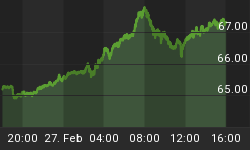Shedding gains since September, and with a global chip shortage still threatening tech stocks, Apple’s upcoming quarterly earnings results are coming into clearer focus, but it’s still a gamble whether to buy on the dip or expect more downside over supply chain issues.
The global chip shortage, including a shortage of components and raw materials, could continue into 2022 and even 2023; and it’s created immense pressure on several industries
Apple’s shares have fallen 9% since their September peak, stripping roughly $229 billion from the tech giant’s market cap. Still, Apple remains the world’s most valuable company in terms of market capitalization.
The recent share price decline followed reports that Apple would cut iPhone production in response to a shortage of chips, keeping in mind that the company is one of the world’s largest chip buyers.
According to a Bloomberg report, due to component shortages, Apple is likely to slash its projected iPhone 13 production targets for this year by as many as 10 million units.
Citing sources with knowledge of the matter, Bloomberg said that Apple told its manufacturing partners that Broadcom (wireless components) and Texas Instruments (display parts) are struggling to deliver enough components.
On that news alone, Apple shares dropped over 1% in aftermarket trading, while Broadcom shares declined 0.8% and Texas Instruments shares were down 1.3%.
Apple had earlier forecast production of 90 million iPhones during the Q4 holiday season. It’s not drastic, though, considering that even with 10 million fewer units produced, Apple still sees a year-over-year increase.
None of it should come as a surprise. During its last earnings call, Apple had warned that supply chain production problems could impact iPhone supply in the current quarter.
In late July, Apple announced financial results for its fiscal 2021 third quarter with a record revenue of $81.4 billion ($1.30 per share), up 36% year-over-year, with a net quarterly profit of $21.7 billion. That topped analysts' forecasts for earnings of $1.01 a share, on sales of $73.5 billion. Sales of iPhone 12 models were still up by nearly 50% compared to the same quarter last year, followed by Mac and iPad sales, up by 16.3% and 12%, respectively.
Overall, the sentiment among analysts is that production cuts and chip shortages will not do any long-term damage to the company.
Morgan Stanley analyst Katy Huberty wrote in a note last week that any supply shortage just pushes iPhone sales into future quarters .
"…Apple is likely to receive more supply than competitors, demand isn't perishable… If Apple can't meet near-term demand, the shortfall is likely to be even greater at competitors," Huberty wrote.
Wedbush's Daniel Ives also said that the production cut wouldn't materially change the magnitude of Apple's success.
"Taking a step back, 5 million to 10 million units moving out of the December quarter into the March quarter due to well understood supply chain issues is not a worry for us,” Ives wrote.
The bottom line? This is probably a buy-on-the-dip opportunity, and Apple--as always--will defy any share price slide and come back out on top, where it already is.
















